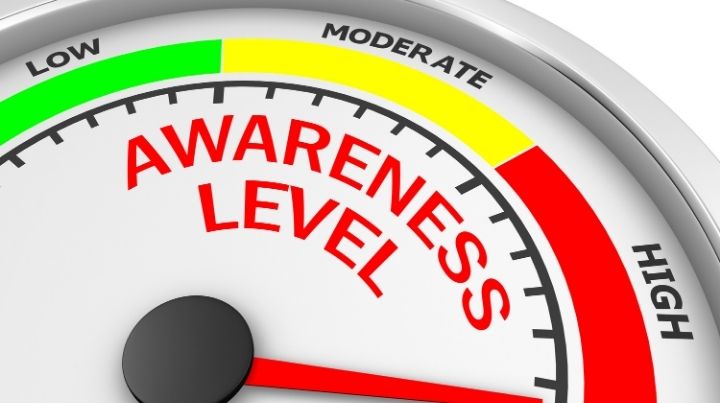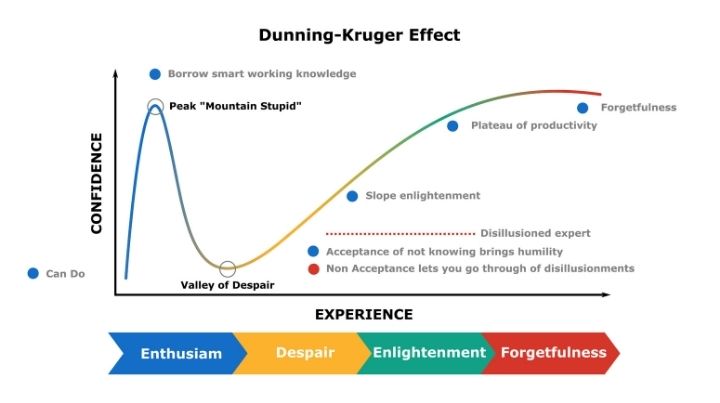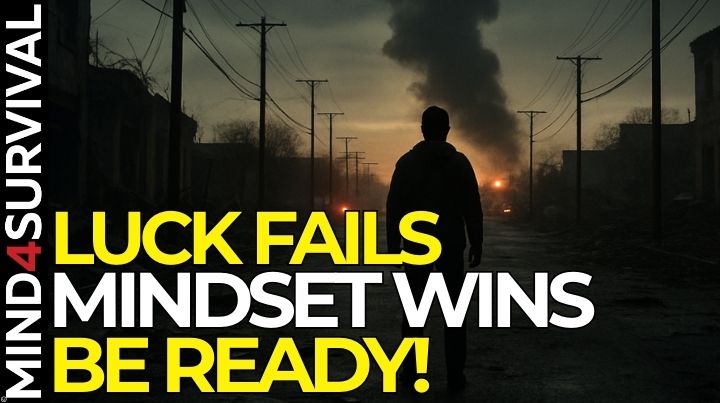42: How to Increase Your Everyday Situational Awareness


Podcast: Play in new window | Download
Everyday situational awareness should be your constant state of being, but how do you focus with constant distractions?
Challenges to situational awareness lurk around every corner. They pose a problem to all of our safety, security, and our very survival. Fortunately for all of us, many of the challenges to everyday situational awareness can be minimized and possibly overcome completely. However, to do so, you first need to understand what the problems are, and that’s what this episode is all about.
Confirmation Bias
Confirmation bias is our tendency to search for, interpret, favor, and recall information that supports our pre-existing beliefs and assumptions.
An example of confirmation bias is the gun control debate. People on both sides of the debate seek out information, news stories, etc., that support and paint their position in a positive light. At the same time, they seek out information that discredits the other side's positions and portrays them in a negative light.
In the end, even if both sides read the same story, they are both likely to interpret the story in ways that support their position and beliefs.
Overcoming Confirmation Bias
Unfortunately, all of us have confirmation bias, even those who believe they’re open-minded. Luckily, we do have the ability to minimize its impact on us. However, while it’s challenging to overcome confirmation bias, we can limit its effect upon us.
The first step is to recognize that it exists. Then attempt to look at issues through other people’s eyes. While you may disagree with them, you may learn to understand their position. Then, as a result of that learning process, you may end up expanding your thought process broadly enough to benefit you and your everyday situational awareness in a way that affects your decision-making abilities.
Here’s an excellent article to learn more about confirmation bias.
Hyper-Focus
Hyper-focus occurs when we focus only on one specific thing. In so doing, it becomes difficult to switch our focus to another situation or task.
An example of task hyper-focus happens when a person is treating an injured patient and focuses on a specific injury. While the person is focused on the one injury, they overlook a more serious but less apparent injury. For example, a medic could be focusing on a fractured limb because it looks awful and not paying attention to something more serious, like life-threatening internal bleeding.
Often, even after a person treats the first injury they are focused on, they’ll neglect to search for other problems. This can also happen in different situations that are non-medical.
Overcoming Hyper-Focus
It’s important to remind yourself from time to time to take in the entire situation. Make sure you mentally step back and honestly observe what is happening in case you missed something before.
Hyper-focus can relate to all sorts of things, like worrying about one specific threat while another lurks right behind you. Hyper-focusing on only one particular aspect of a problem causes your everyday situational awareness to suffer.
The Dunning-Kruger Effect
The Dunning-Kruger Effect (DKE) is a person’s belief that he or she is more capable than they are in physical and mental ability, i.e., overconfidence. This overconfidence can cause someone to miss or ignore warning signs about potential trouble or try to resolve a situation believing he or she is capable but aren’t.

The Dunning-Kruger Effect is a theory that establishes a relationship between a person’s knowledge, experience, and training about a topic or situation and their confidence in dealing with that topic or situation.
People with no knowledge of a subject usually have no faith in their ability to deal with that topic. However, some people with only a small amount of experience or even incorrect information often have the highest amount of confidence. Then, as people gain more knowledge, they learn enough to realize they are not as good as they thought. Over time, a person gradually increases their knowledge and experience related to a topic. Then, they slowly gain confidence in their abilities. Eventually, a person maxes their expertise and capability and is very confident, but not as confident as the person who only knew a little but had high confidence.
Overcoming the Dunning-Kruger Effect
Even we who don’t believe we suffer from the Dunning-Kruger Effect have the potential to do just that, and it can negatively affect our everyday situational awareness. Therefore, we all need to maintain an open and honest relationship with ourselves. If we do, we are then more likely to notice when DKE is setting in. When we notice that, we will be better able to minimize its negative impact on us. As you go throughout your day, take the time to think through situations and look for times when you may have thought yourself better at handling the issue than you genuinely are. Then think about what you did, why you did it, and work to gain both the knowledge to improve yourself and the self-awareness to recognize when the DKE is rearing its ugly head again in the future.
Mental Overload
Mental overload occurs when the mind becomes overloaded with too much information. You fail to absorb some data, which can lead to decisions based on incomplete information, which means our everyday situational awareness is not working at its peak.
Most likely, we’ve all had this happen to us at times. It seems to happen to us on an increasing basis as situations and events become more stressful. As the stress of the event increases, your brain may try to process all of the information from various parts of the situation. As it does, we begin to overload. Our minds can lose focus; we can rush into decisions, panic, freeze, etc. If it hasn’t happened directly to you, you have probably been in or observed situations where it has happened to others.
Overcoming Mental Overload
So, how do you overcome information overload? Well, the first thing to do is recognize when it is happening to you or others. Once you realize that it is happening, try to take a brief moment to mentally close out the world, focus on your mind, take a breath, mentally relax, and tell yourself to settle down. Once you do, before you let your mind re-engage the situation, tell yourself what you need to do and get going. Sometimes, you may have to do this more than once during an incident.
Likewise, if you see someone else experiencing mental overload, say something to them. When you do, you'll help get their mind out of it and back to their regular levels of everyday situational awareness. We’ve all watched old movies when a person slaps another person on the face who is in a state of mental overload. Now, don’t go slapping people, but do something to help break the thought process that has them locked up. You may have to give them another task to perform and take over for them. Depending on the situation, breaking someone’s state of mental overload can be critical to the situation. So, keep an eye out for it.
Complacency
Complacency is when a person believes the current situation is routine, regular, or not urgent and is therefore not concerned. This may cause them to overlook or discount potential problems. Complacency impairs everyday situational awareness. As a result, the person may ignore critical indicators regarding the situation. They could make decisions that may not be appropriate and may lead to additional complications.
Complacency can bite all of us. I’m sure you can think of times when someone thought a situation or task wasn’t worth their time. Then, after discounting it and finding out the actual circumstances, they are completely surprised and caught off guard. Think about it. We’ve all heard of people who stepped in front of a bus. With complacency, there’s often no warning, people aren’t worried that anything is going to happen, and then all of a sudden, wham! The fact is that people, by the thousands, die every year due to complacency. We like to say people die from accidents. But, how many of those “accidents” are caused by people being complacent and not paying attention?
Overcoming Complacency
To overcome complacency, we need to work on keeping our minds engaged with our environment. When we do, we help increase our everyday situational awareness and avoid things like stepping out in front of a bus or walking into a pole while on our cell phone, as Doug Patteson talked about in episode 41. Overcome complacency with concentrated efforts. You must stay on top of it to make sure that nothing is takenfor granted.
The Bottom Line on Everyday Situational Awareness:
Challenges to situational awareness are everywhere and always present. As with any difficulty, though, they can be minimized and overcome. However, to do so takes practice, effort, and honesty with yourself. Honesty means genuinely evaluating yourself, your capabilities, and how you are reacting to a situation.
Practice and effort are required to use what you discover from being honest with yourself. Then you must work to minimize the negatives and accentuate the positives. When you do that, you will lead a more situationally aware life. You'll also be more likely to be on the winning side of any problematic situation.
So, what are you waiting for? Let’s do this!
Stay safe,

Related Articles
FREE Guide
Read the Best Seller
Join Mind4Survival
Stay informed by joining the Mind4Survival! 100% Secure! 0% Spam!
Affiliate Disclosure...
Mind4Survival is a free, reader supported information resource. If you make a purchase through our link, we may, at no cost to your, receive an affiliate commission.
Do You Want To Be Ready No Matter What?

Download our free 39-page guide with interactive, 7-Day Emergency Kit Checklist and take the first step toward real preparedness.
- Know exactly where to start.
- Save time and money.
- How-to build a complete Basic Emergency Kit.
- Level up your safety and security.
Join Mind4Survival
Stay informed by joining the Mind4Survival! 100% Secure! 0% Spam!





